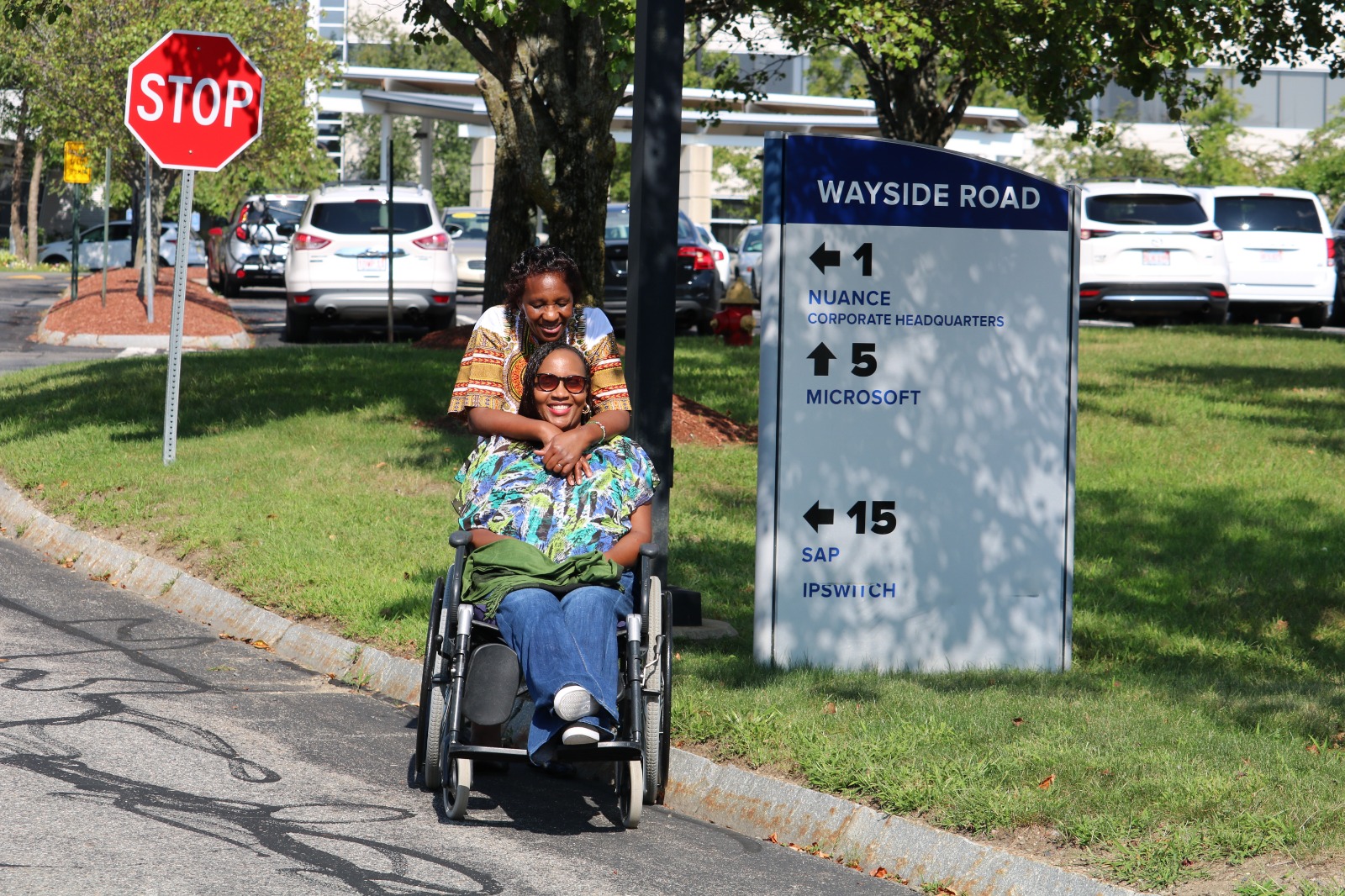In this special guest post, Casey Marenge, the Executive Director of Chariots of Destiny, an NGO that advocates for road safety and individuals with spinal cord injuries, tells the personal story of her own spinal cord injury fifteen years ago and how Dragon speech recognition empowered her and was key to her recovery and ongoing work.
At only 21 years old, living with a disability in a developing country (Nairobi, Kenya), the chances that I would ever live a close to normal life seemed slim.
Just before I joined University, I was involved in a road crash where I sustained a spinal-cord injury which left me quadriplegic – paralyzed from the shoulders down and in a wheelchair. I not only had to deal with the loss of two of my friends who were killed in the crash, but after nine months in rehabilitation, I was discharged from hospital, with the diagnosis I may never walk or use my hands again.
It was during this time while in rehab that I learnt about Dragon Naturally Speaking from Nuance.
To keep myself busy, I repeatedly took every tutorial lesson in the Dragon manual. I dictated entire books and magazines into Microsoft Word and tested my patience during times when I had the flu and Dragon might struggle to interpret what I was trying to say because my voice sounded different from the profile I had created.
After two years learning every functionality of Dragon, I was able to appreciate the magnitude of how much I could achieve with it. Determined to make the best out of my life and use my experience to inspire and empower others, I launched a non-governmental organisation called the Chariots of Destiny and set out to use my story to save lives and advocate for road safety.
Empowered by the same software that I had only previously used to write out word documents, I sent emails to any road safety organisation I could find online. After countless failed attempts, I finally got the opportunity to partner with the FIA Foundation which at the time was running a campaign dubbed “Make Roads Safe”.
Close to 2 months later and with over 20,000 signatures collected, all the days of speaking to a microphone – most times into the late hours of the night – were finally bearing fruit. I was invited to attend and participate at the United Nations General Assembly debate on road safety that was taking place at the UN headquarters in New York.
Other highlights of my journey included being invited as a keynote speaker to present at the first ever Global Ministerial Conference on road safety which was held in Moscow, Russia.
What started as a one-hour session of Occupational Therapy in a rehabilitation hospital years ago, all the sleepless nights and having to relearn how to use a computer by voice commands, my journey with Dragon was finally recognised.
In August 2018, one month shy of marking 15 years as a quadriplegic, I got to celebrate another milestone. I had always dreamt of one day getting the opportunity to share my story with the company that had made a huge impact in enabling me to continue with life despite my injury and the challenges faced. I wanted to reach out with the intent to let anyone at Nuance know the kind of impact Dragon had made and was continuing to make in my life. As a result of connections made on social media and networking platforms like LinkedIn, I connected with Nuance Communications.
Visiting the corporate headquarters was surreal to say the least. I had spent hundreds of days throughout the years, wondering what my life would be like, particularly without the ability to use my hands, if it was not for Dragon.
As I went through a 10-minute demo showing the Nuance team how I use Dragon, everything felt full-circle for me. I am grateful for the opportunity to inspire others to embrace life no matter what situations or challenges one might be experiencing.
Casey Marenge is the Founding and Executive Director of the Chariots of Destiny Organization (COD) an NGO based in Nairobi Kenya whose aim is to advocate for road safety and empower persons living with disabilities particularly spinal cord injuries. Casey founded COD after she was involved in a road crash at the age of 20 which left her quadriplegic and a wheelchair user.






